Before proceeding, refer to
General Plastic Repair
and
Plastic Repair Precautions
.
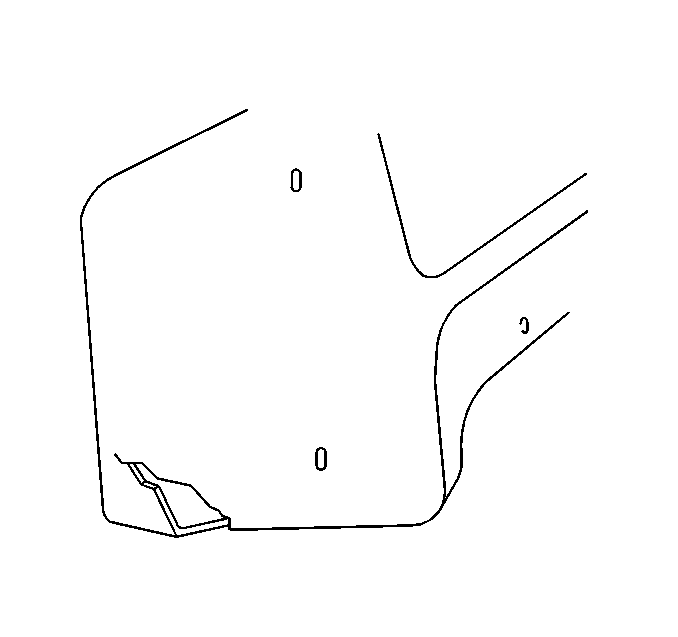
- Clean and inspect the damaged area. Refer to
General Plastic Repair
.
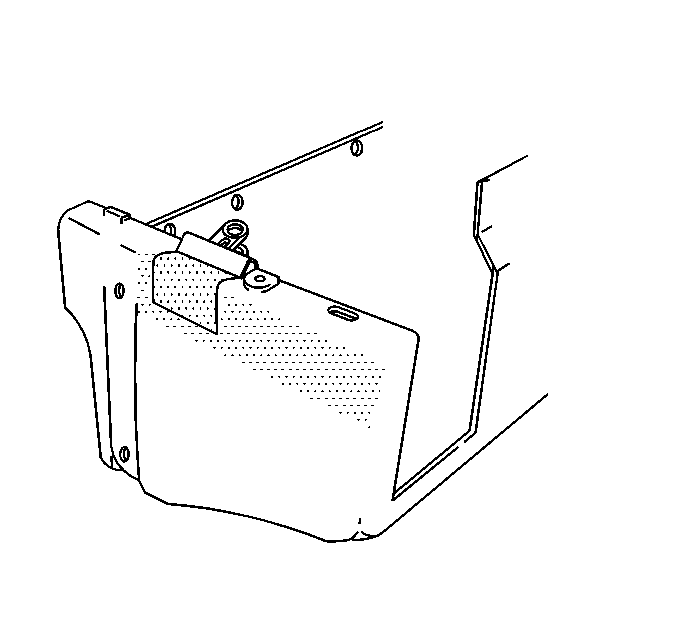
- Clamp or tape the damaged
area in order to maintain alignment.
- Prepare the damaged area for the installation of a backing patch.
| • | If the rear of the damage is accessible, proceed with steps 4 through 6. |
| • | If the rear of the damage is not accessible, proceed to step 7. |
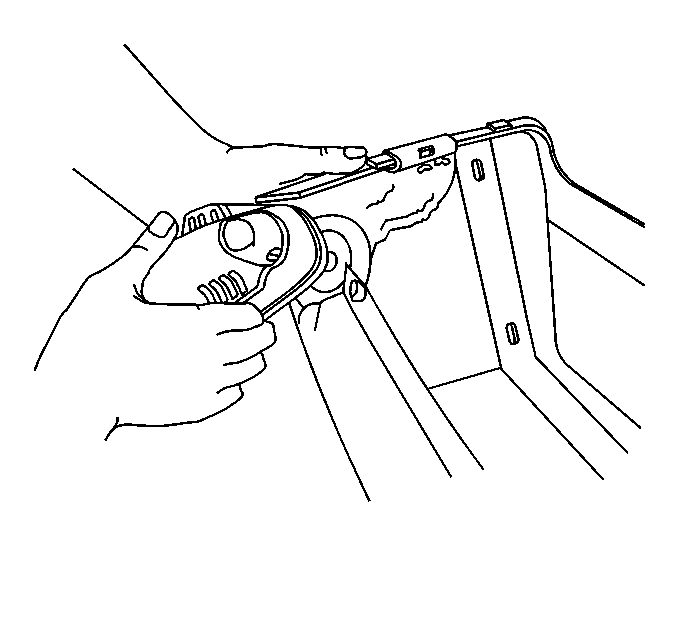
- Scuff the inner surface
with a #80 grit disc on a D A sander or by hand if the access
is limited.
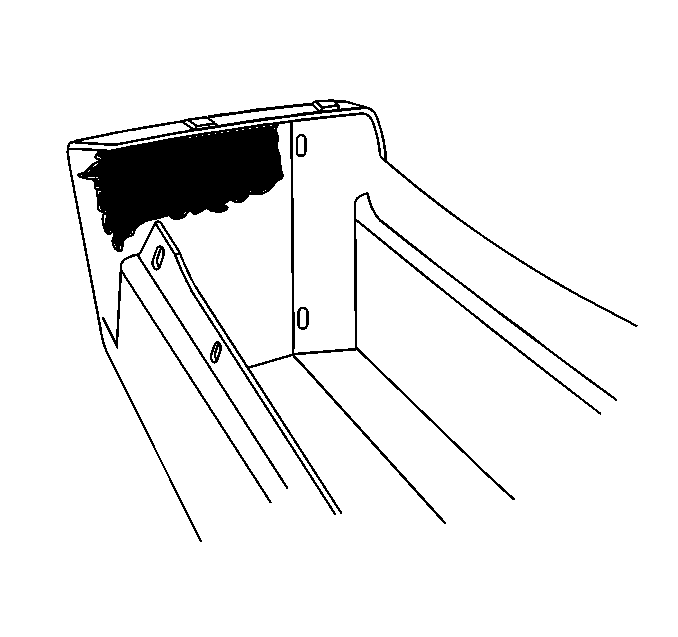
- Determine the proper repair
material. Refer to
Flexible Plastic Part Repair Materials
or
Rigid Plastic Part Repair Materials
.
- Mix the repair material following the manufacturer's instructions.
- Apply, follow the manufacturer's instructions, the repair material
to the inner surface.
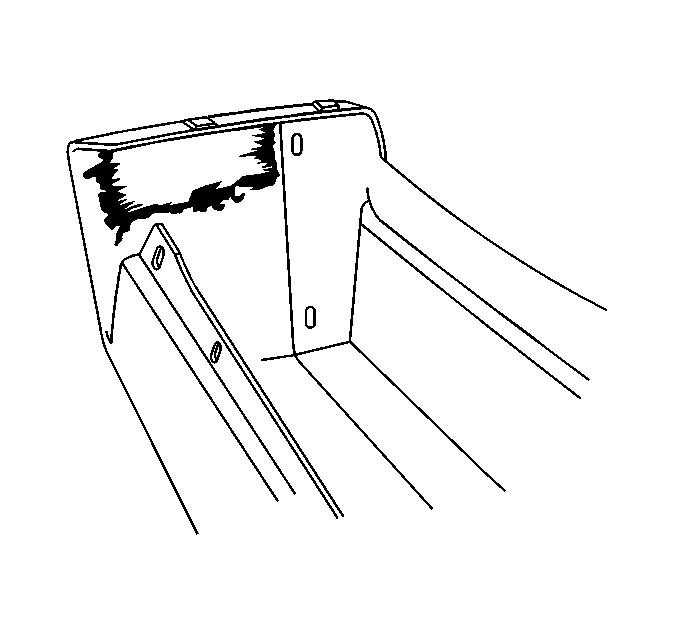
- Apply a backing patch
and proceed to step 21. Refer to
Backing Patch Fabrication
.
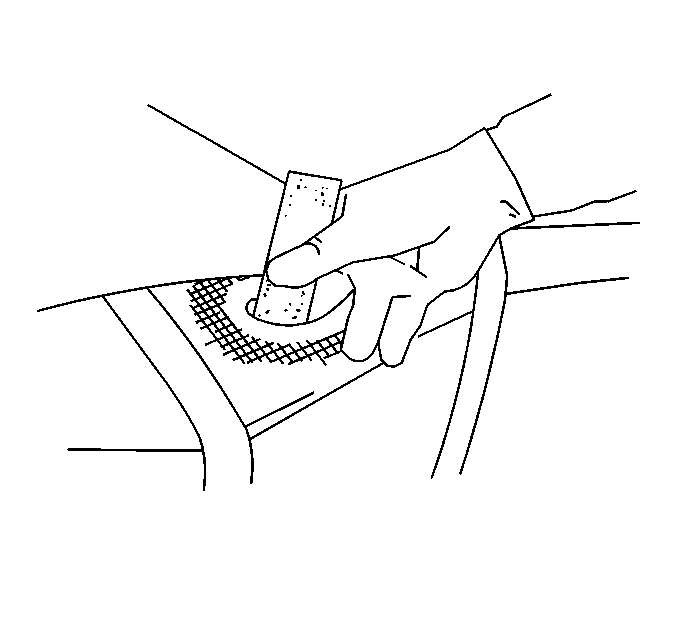
- If the rear of the damaged
area is not accessible remove some of the damaged material in order to form
an access hole through which you can slip a backing patch.
- Cut a backing patch from a scrap piece of panel. Refer to
Backing Patch Fabrication
.
- Sand the mating surface of the patch.
- Reach through the access hole and sand the underside of the repair
area.
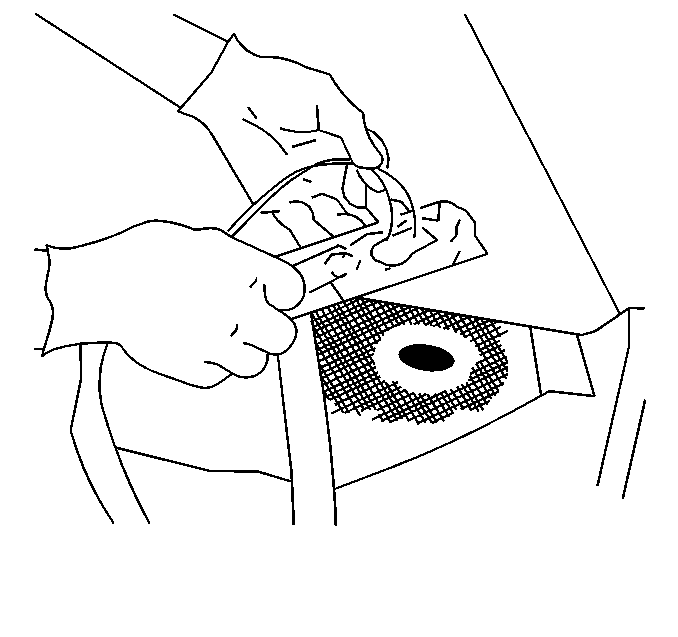
- Drill 2 holes in the backing
patch.
- Thread a piece of waxed wire through the holes in order to assist
in holding the patch in place after installation.
- Determine the proper repair material. Refer to
Flexible Plastic Part Repair Materials
or
Rigid Plastic Part Repair Materials
.
- Mix, follow the manufacturer's recommendations, the correct repair
material.
- Apply , follow the manufacturer's recommendation, the correct
repair material to the mating surface of the patch.
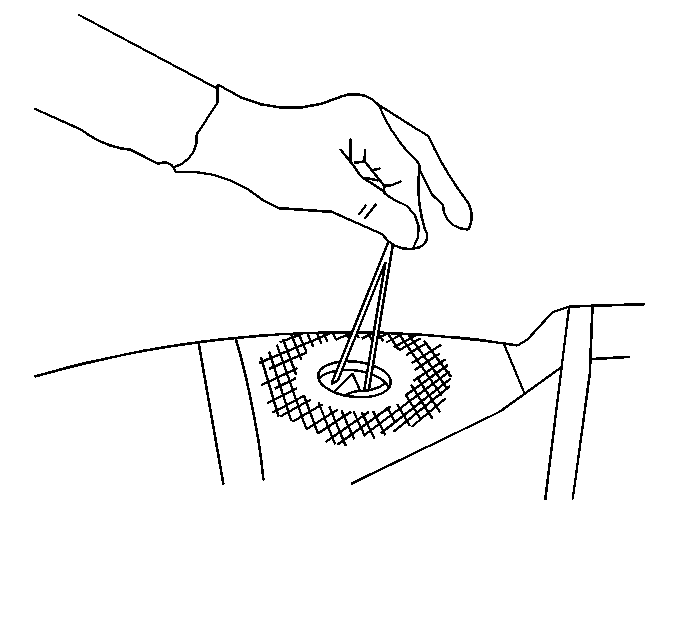
- Slip the patch through
the access hole.
- Pull up hard on the waxed wire until the repair material squeezes
out on all sides.
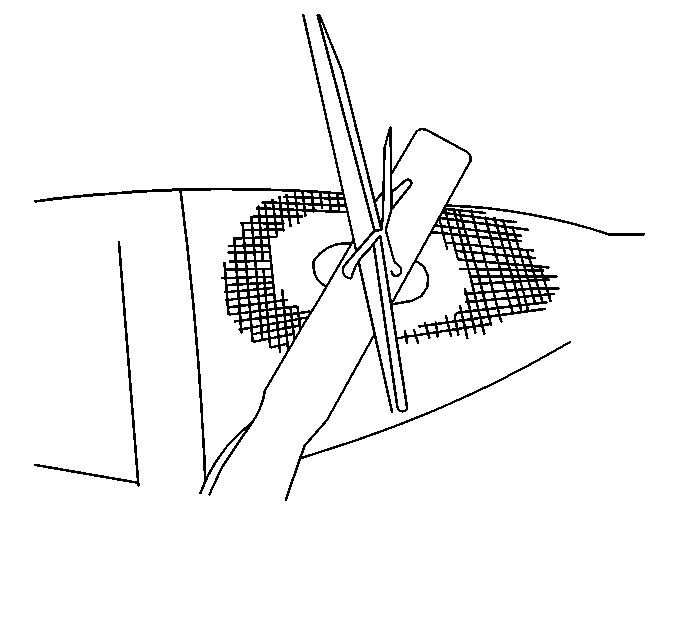
- Twist the wire around
a piece of wood in order to hold the patch in position until the repair material
cures.
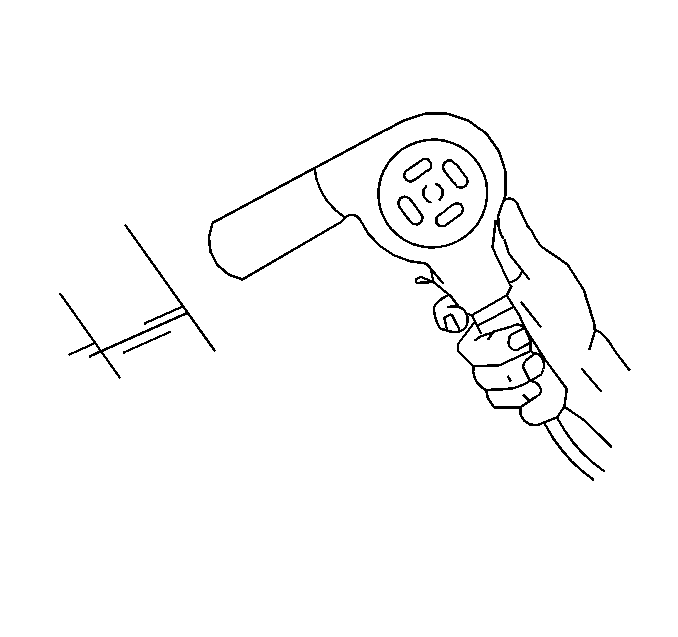
- Cure the repair material
according to the manufacturer's instructions.

- Remove any tape, clamps,
or waxed wire used to maintain alignment.
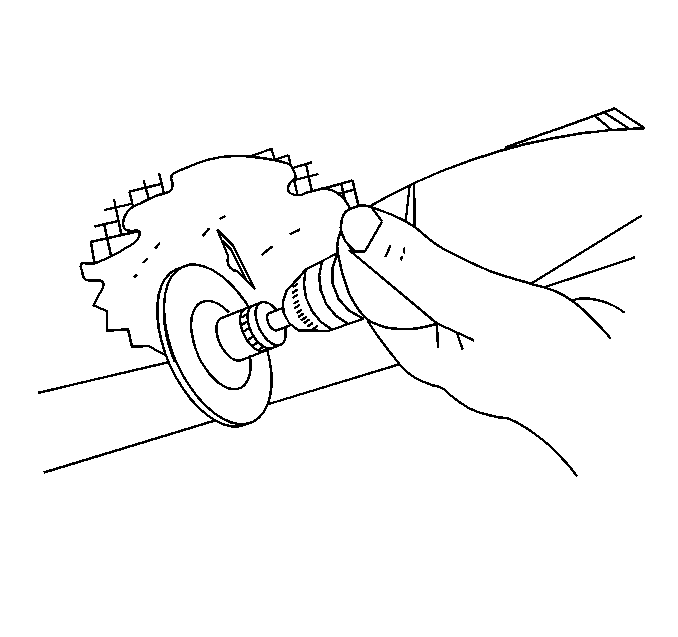
- On the outer surface of
the panel, bevel the damaged area with a #50 grit Roloc disc in order
to extend the contact between the repair material and the substrate.
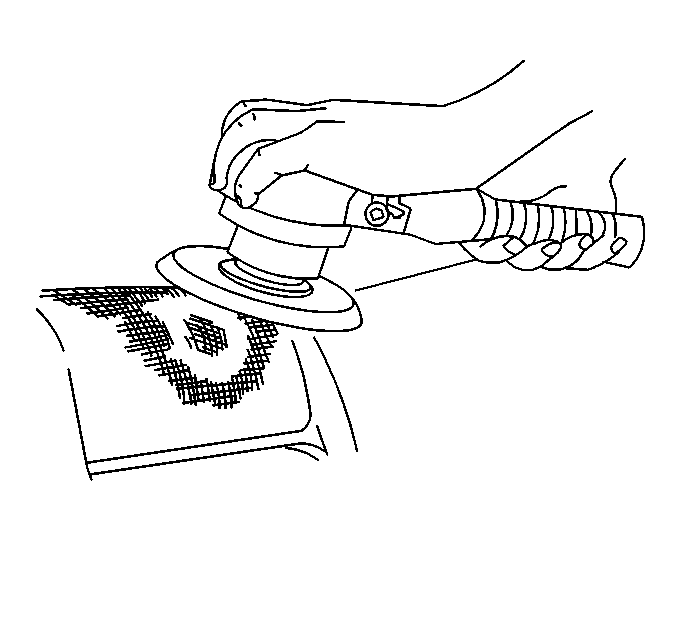
- Using a D A sander, feather out several inches beyond the damaged area
in order to remove any paint or primer from the substrate, and provide a
proper adhesion surface.
| • | Use a #80 grit disc on rigid panels. |
| • | Use a #180 grit disc on flexible panels. |
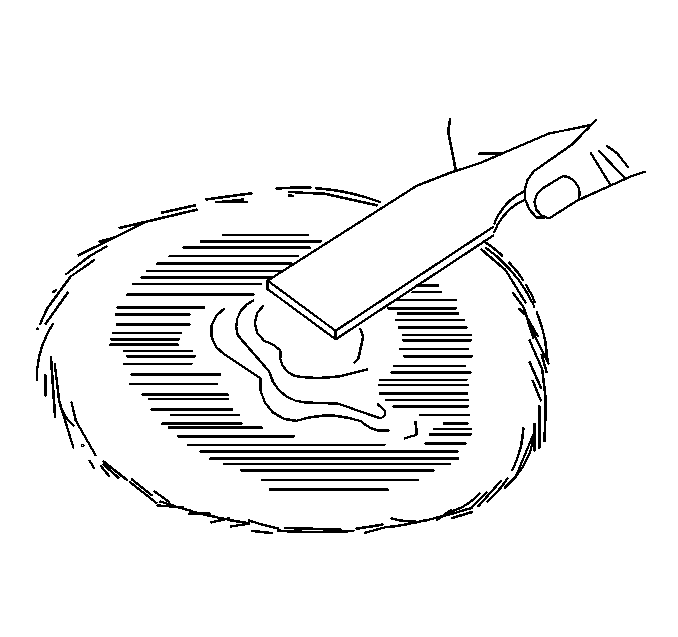
- Carefully and smoothly
apply a light coat of repair material to the damaged area.
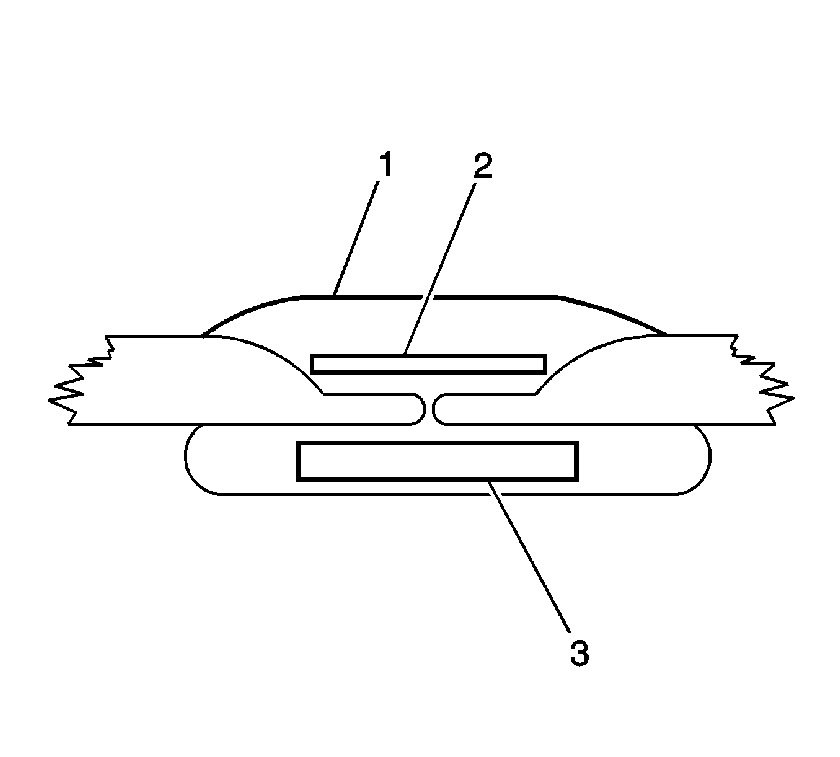
- Add mat material as needed
to strengthen.
- Apply a final layer of repair material (1) at a slightly
higher level than the surrounding area.

- Cure the repair material
according to the manufacturer's instructions.
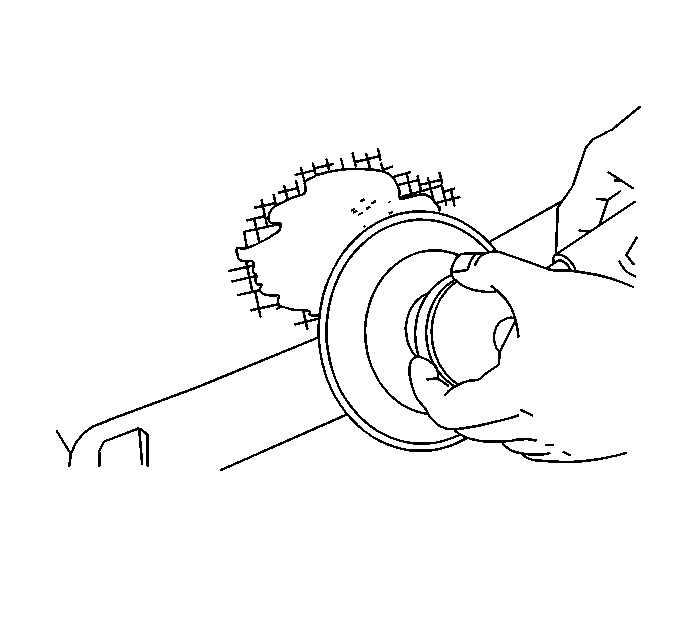
- Rough out the surface
using a #80 grit disc on a D A sander or a curved-tooth body file.
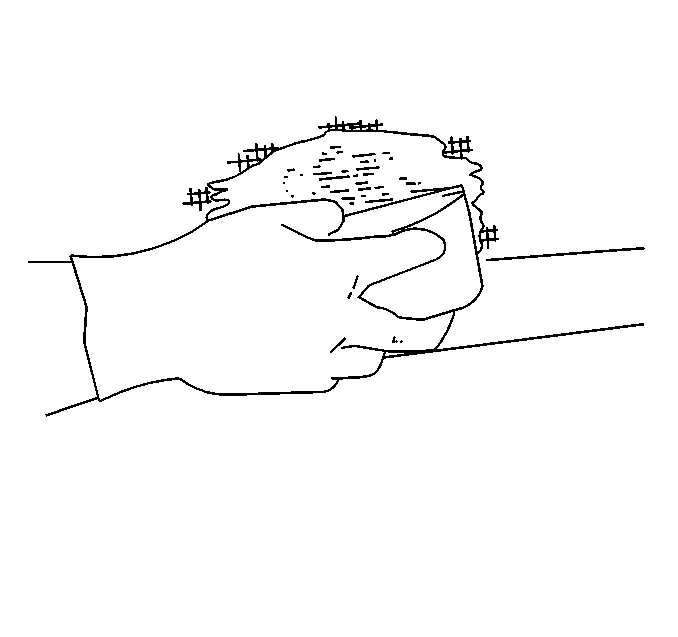
- Finish sanding using a
#220-320 grit wet or dry sandpaper on a sanding block.
- Prime and refinish as necessary. Refer to GM 4901 M-D for
a listing of approved materials. Follow the procedures recommended by the
material manufacturer.


















